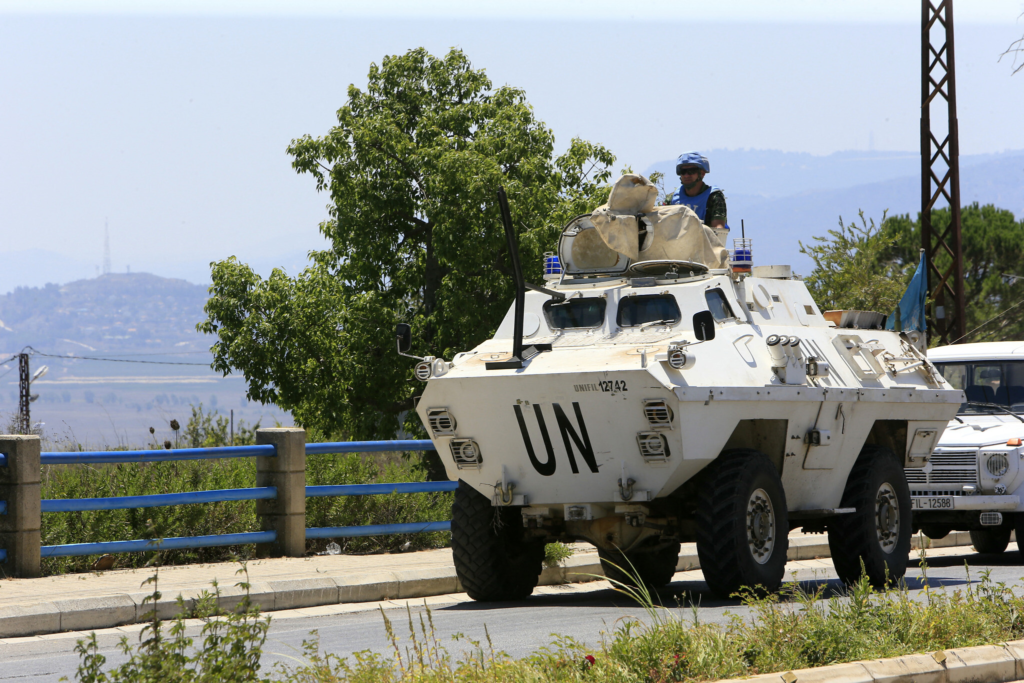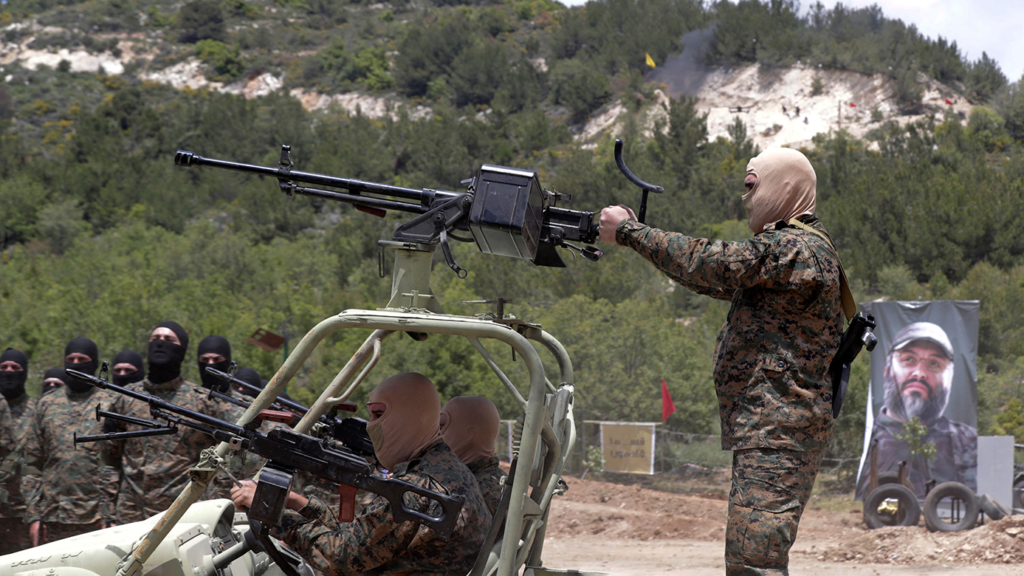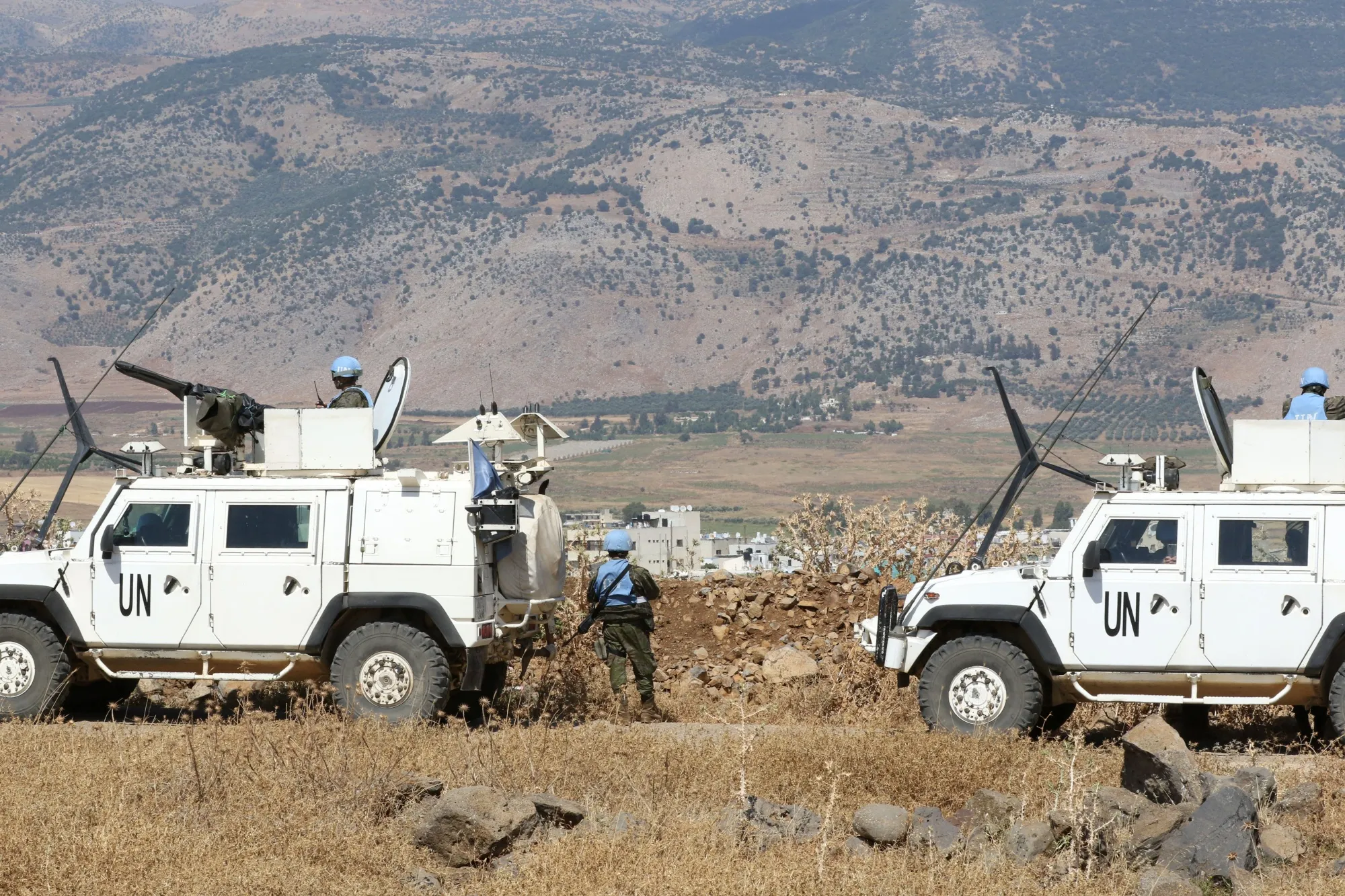UN Mission in Lebanon Hit Again by Explosions. The United Nations Interim Force in Lebanon (UNIFIL) has once again found itself at the center of escalating hostilities, as its headquarters in southern Lebanon was struck by a new wave of explosions.
This attack, which injured two peacekeepers, comes just one day after Israeli forces targeted the same facility amid ongoing cross-border clashes between Israel and Hezbollah.
The recent violence is part of a broader and increasingly complex conflict in the region, as Israel simultaneously engages in military campaigns against both Hezbollah in Lebanon and Hamas in Gaza.
The deteriorating security situation, the growing death toll, and the devastating humanitarian impacts continue to attract international concern.
The United Nations peacekeeping force, which has been stationed in Lebanon since 1978, plays a crucial role in maintaining a fragile peace along the Blue Line—the demarcation line between Israel and Lebanon.
However, the intensifying conflict has raised questions about the ability of UNIFIL to carry out its mission effectively, as both sides accuse each other of violating international law and targeting civilians.
As violence escalates and the region is drawn further into conflict, the role of UNIFIL and the future of peacekeeping efforts in Lebanon hang in the balance.
The Attack on UNIFIL Headquarters
The latest explosion at the UNIFIL headquarters in Naqoura occurred on Friday, just a day after Israeli forces had targeted the same position. The attack injured two peacekeepers, who were part of a multinational force tasked with monitoring the ceasefire and preventing hostilities from spilling across the border.
Read : Hezbollah Using UN Posts as Shields: Israel’s Response to Attacks on Peacekeepers
This incident is part of a pattern of violence that has intensified over the past year, with UN facilities increasingly being caught in the crossfire between Israeli forces and Hezbollah fighters.
The situation for UN peacekeepers in Lebanon has grown precarious. UNIFIL has reported multiple attacks on its facilities since the conflict between Israel and Hezbollah reignited, with both sides accusing each other of provocations and violations of international law.
While the peacekeepers are mandated to maintain stability along the Blue Line, the reality on the ground is that they are now operating in one of the most volatile regions in the Middle East. Despite these challenges, UNIFIL continues to play a crucial role in supporting the ceasefire agreement established after the 2006 Lebanon War.

In its response to the latest attack, the United Nations called on all parties to respect the sanctity of UN premises and ensure the safety of peacekeeping personnel. However, these calls have been repeatedly ignored as the conflict escalates, raising questions about the effectiveness of international efforts to de-escalate the situation.
The UN has reiterated its demand for Israel and Hezbollah to adhere to the principles of international humanitarian law, including the protection of civilians and peacekeepers.
The peacekeepers, drawn from multiple countries, including India, Italy, and Ghana, have been operating in increasingly dangerous conditions. Many of these troops have been stationed in southern Lebanon for several years, and their mission is to support Lebanese authorities in maintaining security in the region.
However, the latest violence has underscored the challenges they face, as both sides have demonstrated little willingness to de-escalate the conflict. As the security situation continues to deteriorate, the risk to UN personnel in Lebanon remains high.
Escalating Conflict Between Israel and Hezbollah
The latest attack on the UNIFIL headquarters is part of a broader escalation of violence between Israel and Hezbollah, which has seen an increase in cross-border fire and airstrikes. On Friday, cross-border fire from Lebanon killed a Thai worker on an Israeli farm, further raising tensions.
Hezbollah, an Iranian-backed militant group based in Lebanon, has long been a significant adversary of Israel, and the two sides have clashed intermittently for years. However, the current conflict has taken on a new intensity, with Israeli forces launching waves of heavy airstrikes across Lebanon and a ground invasion at the border.
The situation in Lebanon has been complicated by the fact that Israel is also engaged in a full-scale war against Hamas in Gaza. The dual-front conflict has stretched Israeli military resources, as it tries to fend off rocket attacks and incursions from Hezbollah in the north while simultaneously conducting a devastating campaign against Hamas in the south.
Hezbollah has aligned itself with Hamas, providing support to the Palestinian group and attacking Israeli targets from Lebanese territory.
The Israeli military, for its part, has accused Hezbollah of using civilian areas as cover for its operations. Israel has justified its attacks on Lebanese territory by pointing to Hezbollah’s missile and rocket attacks, which have targeted Israeli civilians in the northern part of the country.
The Israeli government has framed its actions as self-defense, arguing that Hezbollah has been launching attacks from positions near civilian infrastructure, including schools, hospitals, and UN facilities.

Despite Israeli claims, the Lebanese government and Hezbollah have accused Israel of violating international law and targeting civilians. Lebanon’s crisis response unit announced on Friday that 60 people had been killed and 168 wounded in the past 24 hours alone, bringing the total number of casualties over the past year to 2,229 killed and 10,380 wounded.
This mounting death toll highlights the toll the conflict has taken on Lebanon, which is already grappling with a severe economic crisis and political instability.
Humanitarian Crisis and Regional Implications
The conflict between Israel and Hezbollah has compounded an already dire humanitarian situation in Lebanon. The country, which has been facing economic collapse, widespread poverty, and political paralysis, is now enduring the devastating impacts of the escalating war.
The health system in Lebanon is on the brink of collapse, with hospitals struggling to cope with the influx of wounded civilians. The Lebanese Health Ministry has reported that the conflict has left thousands of civilians dead or wounded, and the situation continues to worsen as the fighting intensifies.
The humanitarian crisis is not limited to Lebanon. In Gaza, Israel’s offensive against Hamas has led to catastrophic levels of destruction. According to Palestinian health authorities, over 42,000 people have been killed since the conflict began, with women and children making up more than half of the fatalities.
The scale of the destruction in Gaza is unprecedented, with large areas of the territory reduced to rubble and 90% of its population displaced. The war has created a humanitarian disaster of epic proportions, as food, water, medical supplies, and shelter are in critically short supply.
The regional implications of the conflict are profound. As Israel fights two simultaneous wars, one with Hamas in Gaza and the other with Hezbollah in Lebanon, the broader Middle East is being drawn into the conflict.
Iran, which supports both Hamas and Hezbollah, has been accused of fueling the violence by providing military and financial support to both groups. Meanwhile, countries like Egypt, Jordan, and Saudi Arabia have called for an immediate ceasefire and a return to diplomacy.

The international community, including the United Nations, the European Union, and the United States, has been actively engaged in trying to broker peace. However, diplomatic efforts have so far been unsuccessful, as both Israel and Hezbollah remain entrenched in their positions.
Israel has vowed to continue its military campaign until it has neutralized the threat posed by Hezbollah and Hamas, while Hezbollah has declared its intent to keep fighting until Israel withdraws from what it sees as occupied Palestinian territory.
As the conflict drags on, the prospects for a peaceful resolution appear slim. The war has displaced millions of people across the region, created untold suffering, and deepened existing divisions between Israel and its neighbors.
The longer the fighting continues, the more difficult it will be to find a lasting solution to the crisis. For now, the region remains in the grip of violence, with no clear end in sight. The attack on the UNIFIL headquarters in southern Lebanon is a stark reminder of the dangers faced by peacekeepers in conflict zones.
As the war between Israel and Hezbollah escalates, UN personnel find themselves caught in the crossfire, trying to maintain a fragile peace along the Blue Line. The latest violence has underscored the risks faced by both peacekeepers and civilians, as the conflict continues to spiral out of control.
The broader conflict between Israel and Hezbollah is part of a larger regional struggle that has devastated both Lebanon and Gaza. With thousands of civilians dead, millions displaced, and entire regions reduced to rubble, the humanitarian toll of the war is staggering.
Despite international efforts to broker peace, the conflict shows no signs of abating, and the future of the Middle East remains uncertain. For now, the situation continues to worsen, with UN peacekeepers, civilians, and combatants alike paying the price.

